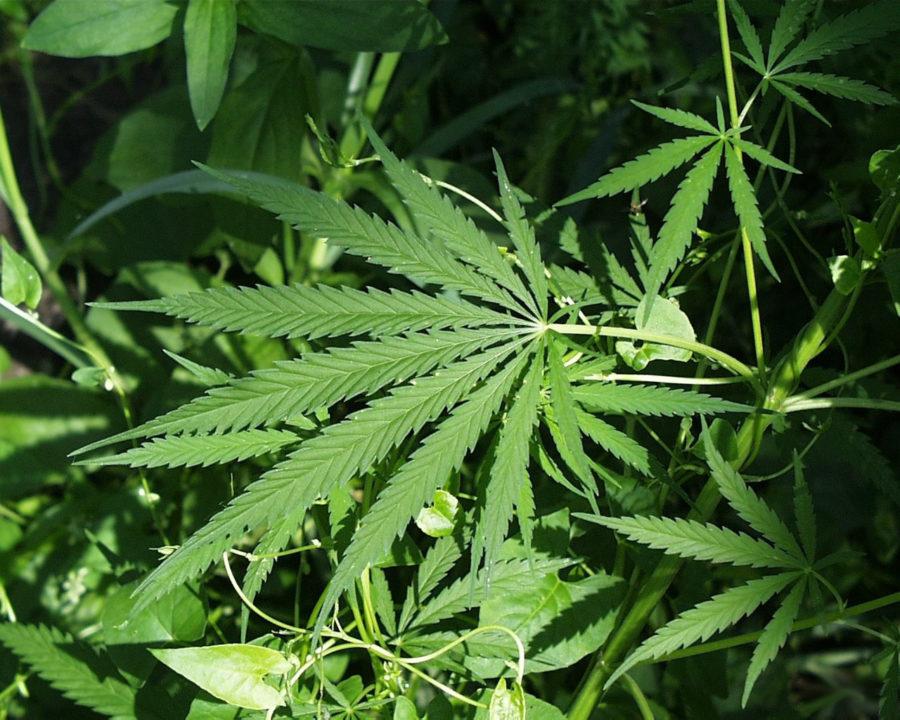Marijuana myths debunked
Editorial: Steps towards medical marijuana good
April 19, 2016
It’s April 20, which means the worldwide celebration of marijuana culture appropriately known as 4/20 is again upon us. “Four-twenty” originated as a time – 4:20 p.m. – when a group in San Rafael, California met regularly in the 1970s to search for an elusive cannabis crop nearby. They never found it, but 4/20 instead became a code word, and then a symbol of the counterculture surrounding marijuana.
While the story behind the 4/20 name was finally verified in the late 2000s after decades of speculation, several myths about marijuana itself still exist. From the obvious to the lesser-known, here are five myths about marijuana and the facts that show they may not quite be true.
Myth: Marijuana always gets you high.
Fact: There are two primary ingredients in marijuana: tetrahydrocannabinol (THC) and cannabidiol (CBD). In simple terms, THC produces the psychological effects that get you high, and CBD does not. Therefore, high-CBD strains of marijuana are not only recommended for people smoking recreationally – and legally – for the first time, but are also most common in medical strains of marijuana where the aim is not for the user to get high. Some parents of children who suffer from dozens of seizures a day have found that high-CBD strains of marijuana oil help control their children’s seizures better than conventional drugs without any psychological effects.
Myth: Marijuana has no medical benefits.
Fact: Twenty-three states and Washington, D.C. currently allow varying limits of marijuana possession for medical use, with the conditions for which it can be legally prescribed also depending on the state. A study published in the Journal of the American Medical Association in 2015 concluded that there was moderate evidence to suggest that medicinal marijuana could best be used to treat chronic pain and muscle spasticity associated with multiple sclerosis or paraplegia. Like any drug, the positive health effects of marijuana also depend on the individual person. Medicinal marijuana has been used to alleviate nausea and vomiting due to chemotherapy, induce necessary weight gain in HIV/AIDS patients and help people with chronic insomnia sleep.
Myth: Smoking marijuana causes brain damage.
Fact: This myth originates from a Tulane University study conducted in the 1970s where rhesus monkeys were exposed to marijuana smoke via face mask inhalation. However, this study was later discredited due to its small sample size and the unrealistically heavy doses of marijuana the monkeys ingested. Two studies in the early 1990s, conducted by the National Center for Toxicological Research and SRI International, did not find evidence of brain damage in the rhesus monkeys studied. More recently, a 2015 study published in the Journal of Neuroscience came to a similar conclusion in humans.
Myth: Marijuana impairs your driving more than alcohol.
Fact: While far less research in this specific area has been conducted, one study has shown driving while drunk is more dangerous than driving while stoned. In 2013 and 2014, the University of Iowa conducted a clinical trial using its National Advanced Driving Simulator that tested the effects of cannabis use on driving. Participants had to inhale cannabis through a vaporizer because the UI is a smoke-free campus, but the psychological effects remained similar to smoking a high-THC strain. Researchers found that drivers with cannabis in their systems failed fewer of the trial’s assessments of safe driving than did those who had consumed alcohol.
Myth: Marijuana is completely harmless.
Fact: While the above items point toward the more positive aspects of marijuana, especially in its medicinal forms, marijuana is by no means harmless. Smoking marijuana still requires the user to inhale smoke and tar, which are categorically bad for the lungs. The side effects of marijuana use, including in its medicinal forms, include nausea, dizziness and in rare cases, hallucinations. Also, if medicinal marijuana doesn’t help control certain seizure disorders or mental illnesses like anxiety, it can actually make their symptoms worse. None of this is to say the benefits for some people are not profound, only that like any drug, marijuana does not affect every person the same way.
Today, some Iowans may take it upon themselves to celebrate 4/20 with this information in mind. But it is important to remember that marijuana is still illegal in the state of Iowa – and that’s a fact.







